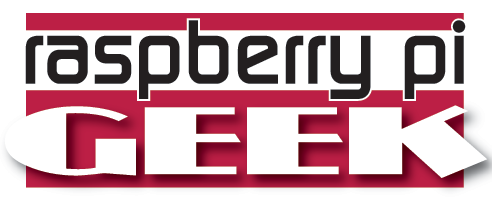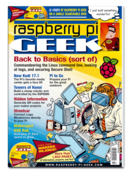The Raspberry Pi celebrates its fourth birthday
The Scene
As with Linux User Groups, where information gets exchanged and people work to promote the system, so-called Pi Jams have developed around the Rasp Pi. People meet to share experiences and information, network, and spread the word about the little computer.
Raspberry Jams usually take place in the UK and in the United States. Some are also happening in South America, the Ukraine, and Germany. (See the "Pi and More" box for details.) Some jams are spontaneous and others are organized in advance to feature lectures and workshops, project presentations, and also product marketplaces. The number of participants can vary from a few to several hundred, as is the case in Cambridge, England (Figure 6).
Pi and More
Germany has also seen the establishment of an extremely successful Raspberry Pi Jam. The one scheduled for this summer will be the ninth in the series. The Jam originated at the Univerity of Trier. Every second Pi and More Jam is hosted by a different university in either Trier, Luxemburg, or Saarbrücken.
On June 11, 2016, the jam will be held in Trier, where beginners and experts are invited to enjoy a friendly atmosphere offering workshops and projects on the Raspberry Pi, the Arduino, and other SBCs and microcontrollers. Daniel Fett, who helps organize the Jam, says, "robots, home automation and games are always popular with our audience. We even build a little enclosure for the robots." Other areas of interest are also represented, such as art projects, industrial applications and the use of the Raspberry Pi in a school setting.
 Figure 6: Many Raspberry jams are well attended, like the one here in Cambridge, England. © Jennifer Deegan, Cambridge (UK)
Figure 6: Many Raspberry jams are well attended, like the one here in Cambridge, England. © Jennifer Deegan, Cambridge (UK)
Outlook
The success of the Rasp Pi is still in the beginning stages. Emerging economies and third-world countries in particular offer an opportunity for the Rasp Pi to make a significant contribution to educating future computer scientists. This presupposes, however, that many of the existing import tariffs are lowered so that the Rasp Pi can find its way into more low-income households. Upton has definitely reached one of his original goals: In the United Kingdom, the number of students studying computer science is again rising.
The Rasp Pi is still in the beginning stages with respect to industrial and commercial applications. Upton has announced the development of a new Compute module 3, which has a more powerful processor. This opens up new areas in which the Rasp Pi will be able to compete with other computers. The stormy development ahead for the IoT, which will unleash increased demand for integrated computers, should increase sales of the Rasp Pi. This is already happening for the new model with its integrated WiFi and Bluetooth interfaces.
A RPi3 Model A is also in the queue at the Foundation. Similar to its predecessors, this model will be a trimmed-down version primarily intended for IoT applications. We are assuming that the Raspberry Pi Foundation will organize other festivities for its four-year milestone (Figure 7). We want to take this opportunity to wish the computer happy birthday.
 Figure 7: Many exhibitors attended the Rasp Pi birthday celebration on March 5 and 6 in Cambridge, England. They showed numerous extensions and projects for the Rasp Pi. © Maximilian Batz
Figure 7: Many exhibitors attended the Rasp Pi birthday celebration on March 5 and 6 in Cambridge, England. They showed numerous extensions and projects for the Rasp Pi. © Maximilian Batz
Infos
- 8 Million Raspberry Pis: https://www.raspberrypi.org/blog/raspberry-pi-3-on-sale/
- Initial Sale: http://www.theguardian.com/technology/2012/mar/04/raspberry-pi-schools-computer-science
- Production Location: https://www.raspberrypi.org/blog/made-in-the-uk/
- Announcement of charity fund: https://www.raspberrypi.org/blog/announcing-our-million-pound-education-charity-fund/
- Restructuring: https://www.raspberrypi.org/blog/welcome-lance/
- Board of Advisors: https://www.raspberrypi.org/about/
- New Compute module: https://www.raspberrypi.org/blog/raspberry-pi-compute-module-new-product/
- B+ Release: https://www.raspberrypi.org/blog/introducing-raspberry-pi-model-b-plus/
- Announcement of market introduction: https://www.raspberrypi.org/blog/raspberry-pi-model-a-plus-on-sale/
- Release of the Raspberry Pi 2: https://www.raspberrypi.org/blog/raspberry-pi-2-on-sale/
- Blog Entry on the Pi Zero: https://www.raspberrypi.org/blog/raspberry-pi-zero/
- Release of the Raspberry Pi 3: https://www.raspberrypi.org/blog/raspberry-pi-3-on-sale/
« Previous 1 2 3 4 Next »
Buy this article as PDF
Pages: 8
(incl. VAT)







